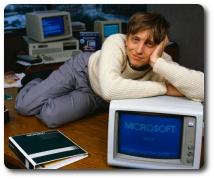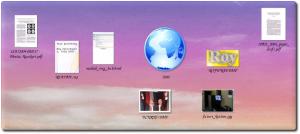 PEN formats are based upon a standardised specifications, which ensure global collaboration among applications. Without common formats, hardware are software are simply unable to communicate, unless they come from the same vendor. Formats are also analogous to the notion of a language, or technically speaking, “protocols” and “standards”. They are often agreed upon by an ample panel, which involves industry experts and industry/academy leaders.
PEN formats are based upon a standardised specifications, which ensure global collaboration among applications. Without common formats, hardware are software are simply unable to communicate, unless they come from the same vendor. Formats are also analogous to the notion of a language, or technically speaking, “protocols” and “standards”. They are often agreed upon by an ample panel, which involves industry experts and industry/academy leaders.
What happens, however, when a company goes astray and implements its own formats, which it is unwilling to disclose for competitive reasons? What happens when a format is extended without acceptance by others who already use and depend on it? When common language is violated, disaster is foreseen. An industrial majority (or a monopoly) can use miscommunication as a ‘tool’ which drives competitors away. The temptation to use that tool as a weapon is often there, yet the seminal formats must always be honoured. If not, conversion facilities must be made available, so that a non-lossy route can be followed to ‘sanitise’ the unknown data structures and appendages.
 I have already complained about proprietary formats that lock one’s personal data. The context in this blog was Palm-powered devices, as well as software packages from Microsoft. It is a terrible scenario when one chooses an appliance or a software package over open formats and is thereafter obliged to use it perpetually. It is an utter lock-in, which has even reached the Web that is openness-motivated. Internet Explorer-only beame more commonplace, yet Firefox has shouted out for a change in recent years.
I have already complained about proprietary formats that lock one’s personal data. The context in this blog was Palm-powered devices, as well as software packages from Microsoft. It is a terrible scenario when one chooses an appliance or a software package over open formats and is thereafter obliged to use it perpetually. It is an utter lock-in, which has even reached the Web that is openness-motivated. Internet Explorer-only beame more commonplace, yet Firefox has shouted out for a change in recent years.
Let us illustrate the primary contention with the aid of yet another specific example. In question are the advantages of open fromat and exportable data, so let us consider address book (contacts) data on a variety of platforms. I currently hold my address books on Palm’s Address, KDE’s KMail, and Mozilla Thunderbird. Maybe I base my statements on the wrong factors, but experience shows that address confusion and poor organisation skills are prevalent among those that still rely on Microsoft to organise and manage their data. I used to be among those who delegate data organisation to applications (packages) rather than formats. As a consequence, I struggled to move between application, inter-operate or even decipher my own data in the absence of one particular commercial application. Sounds familiar?
In summary, as food for thoughts to ponder: maybe it’s the obscurity of moving data without adherence to standard formats. Maybe it is the lack of import/export utilities and maybe frequent hard-drive re-formatting due to virus attacks and the like. Either way, Linux and Mac users appear to have extensive data which is easily-locatable, inter-changeable, rocoverable and resilient. Openness entails true benefits, which are better understood in the long term.
 ILL Gates comes from a dynasty of businessmen and politicians. Over the years he was trying to commercialise software and nowadays he monopolises it. So what gives?
ILL Gates comes from a dynasty of businessmen and politicians. Over the years he was trying to commercialise software and nowadays he monopolises it. So what gives?





 Filed under:
Filed under: 
 PEN formats are based upon a standardised specifications, which ensure global collaboration among applications. Without common formats, hardware are software are simply unable to communicate, unless they come from the same vendor. Formats are also analogous to the notion of a language, or technically speaking, “protocols” and “standards”. They are often agreed upon by an ample panel, which involves industry experts and industry/academy leaders.
PEN formats are based upon a standardised specifications, which ensure global collaboration among applications. Without common formats, hardware are software are simply unable to communicate, unless they come from the same vendor. Formats are also analogous to the notion of a language, or technically speaking, “protocols” and “standards”. They are often agreed upon by an ample panel, which involves industry experts and industry/academy leaders. I have already complained about proprietary formats that lock one’s personal data. The context in this blog was
I have already complained about proprietary formats that lock one’s personal data. The context in this blog was 
 ICROSOFT have announced officially their intent to enter the anti-virus market a couple of months ago. They now unveil a service called OneCare (homonym of “wanker”) Live, which is paid for annually. In simple words, the customer gets protection for the operating system’s own flaws and pays $50 per year for the service from no-one but the O/S vendor. As
ICROSOFT have announced officially their intent to enter the anti-virus market a couple of months ago. They now unveil a service called OneCare (homonym of “wanker”) Live, which is paid for annually. In simple words, the customer gets protection for the operating system’s own flaws and pays $50 per year for the service from no-one but the O/S vendor. As 
 A
A 